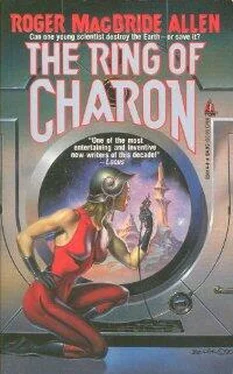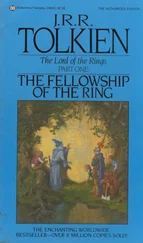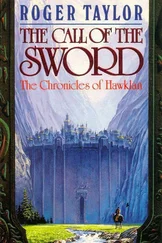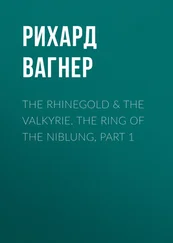Roger Allen - The Ring of Charon
Здесь есть возможность читать онлайн «Roger Allen - The Ring of Charon» весь текст электронной книги совершенно бесплатно (целиком полную версию без сокращений). В некоторых случаях можно слушать аудио, скачать через торрент в формате fb2 и присутствует краткое содержание. Год выпуска: 1990, ISBN: 1990, Издательство: Tor Books, Жанр: Фантастика и фэнтези, на английском языке. Описание произведения, (предисловие) а так же отзывы посетителей доступны на портале библиотеки ЛибКат.
- Название:The Ring of Charon
- Автор:
- Издательство:Tor Books
- Жанр:
- Год:1990
- ISBN:0-812-53014-4
- Рейтинг книги:5 / 5. Голосов: 1
-
Избранное:Добавить в избранное
- Отзывы:
-
Ваша оценка:
- 100
- 1
- 2
- 3
- 4
- 5
The Ring of Charon: краткое содержание, описание и аннотация
Предлагаем к чтению аннотацию, описание, краткое содержание или предисловие (зависит от того, что написал сам автор книги «The Ring of Charon»). Если вы не нашли необходимую информацию о книге — напишите в комментариях, мы постараемся отыскать её.
The Ring of Charon — читать онлайн бесплатно полную книгу (весь текст) целиком
Ниже представлен текст книги, разбитый по страницам. Система сохранения места последней прочитанной страницы, позволяет с удобством читать онлайн бесплатно книгу «The Ring of Charon», без необходимости каждый раз заново искать на чём Вы остановились. Поставьте закладку, и сможете в любой момент перейти на страницу, на которой закончили чтение.
Интервал:
Закладка:
Back to space soon , he promised himself, not quite believing it. There was still hope. To Venus, and VISOR, and his wife and his work.
Strictly speaking, the primary subject of Gerald MacDougal’s work did not exist. One of his career goals was to wipe out anything that resembled it.
Gerald was an exobiologist, a student of life off the planet Earth. The flaw, of course, was that there wasn’t any life beyond Earth. Except, of course, such Earth-evolved life that continued to evolve even off planet. Every human being, every plant, every animal brought along to the Settlements carried microscopic life-forms by the billions.
Anywhere humans went, viruses, bacteria, and other microbes, disease-causing and benign, traveled as well. Normal medical practice was enough to keep most of the nasties at bay inside the sealed colonies—but some microbes escaped the domes, tunnels, ships and habitats to the outside environments. Virtually all of them died the moment they left the controlled environment. But a few survived. And of those survivors, a very few managed to reproduce, and evolve, often at a ferocious rate.
Earth-derived microbes lurked in the soil around Martian cities, living off dome leakages of air, moisture and organics; lived inside the rock of mining asteroids, dining on a witches’ brew diet of complex hydrocarbons; lived as mildew-like patches in airlocks all over the Solar System, absorbing air, moisture and bits of organic matter whenever the locks were pressurized, encysting when they went into vacuum.
Even to Gerald, who should have been used to such things by now, the tenacity of life in such circumstances was incredible. It was proof to Gerald that there was a God. No random sequence of events could have produced living things capable of such feats. Evolution existed, yes; Gerald was no creationist. But there was a divine hand guiding evolution.
A divine hand that worked in mysterious and sometimes horrifying ways. For a few, a terrifying few, of the outsider organisms came back inside the domes and the spacecraft. Most such Returnees were wiped out by the drastically different environment, but some readapted to life back inside. That was when terror struck. Hardened by their generations outside air, light and pressure, some Returnee organisms bred hellaciously back inside, carrying in their genes the ability to digest unlikely things. Plastics, metal, resin compounds, semiorganic superconductors. And some of them, ancestors of disease organisms, retained the ability to infect the human body.
There were microorganisms that could cause disease in humans and also eat through pressure suits and air domes from the inside. Or dissolve the superconducting wires of power grids. Or jam valves in fusion systems.
From a human perspective, the Returnees were a nightmare. But God, Gerald had long since decided, did not have a human perspective. The Good Lord wanted all life, everywhere, to have a chance. Humans and microbes were equally His children, equally miraculous. He wanted all His children to have a chance at life, from the most high unto the least. If some individuals of one species had to die so another species might survive, was that not the way of all Nature? Why should humanity be exempt?
He did not see any contradiction between admiring the dogged survival skills of the Returnees and coldbloodedly seeking to destroy them. The wolf lives at the expense of the deer, and the buck may kill the wolf to defend his herd. Neither is right or wrong. Even the lamb lives at the expense of the foliage it crops—and many a thorn will stab at a lamb unwary enough to dine on the wrong plant. All that lives must draw life from others, and must defend itself against the assault of other species. So too with humanity.
Gerald’s goal was to wipe out all off-planet microscopic life outside the human-made environments. He knew he could never achieve his goal, and this knowledge gave him a certain strange comfort. But it was not enough. The destruction of life, however needful, did not fulfill Gerald.
He wanted to create life, be God’s tool in the work of making a whole new world full of life—but now that dream was fading. The circumstances were so frustrating.
The terraforming of Venus was technically possible. No one questioned that any longer.
Gerald’s work would have played a part in it, too. The Isolated Exobiology Facility would have been an ideal source of terraforming microbes. The simplest of gene engineering would have produced microbes to break down the noxious atmosphere, to fix nitrogen to soil, to remove carbon dioxide and produce water, to convert the acid-leached rocks to soil.
But the era of grand projects, of great visions, was fading before it had gotten properly under way. The Terra Nova starship project had been canceled, and now the word was that the Ring of Charon was being shut down. What hope could there be for a plan to rebuild a world? More than likely, the microbes stored at Gerald’s Isolated Exobiology Facility would never get their chance to seed Venus.
He looked up from the valley, into the late-night sky. Venus would not rise for hours yet, but he knew it was there. And Marcia was there, aboard VISOR as it circled that hell-hot world. He had spent much of the last year preparing to join her there—but now the two of them were forced to face the likelihood that it would be Marcia returning here, as humanity retreated from the challenge of Venus.
The comm center bleeped, and Gerald rushed over to it, sat down and powered up the screen. The countdown clock appeared, ticked down to zero, and then was replaced by Marcia’s dark exquisite face.
“Hello, Gerald,” she said, her voice warm and loving. “Thank heavens I got through—we just got word of a big experiment that we’ll need all our transmission bandwidth for. There was supposed to be a ten o’clock cutoff on personal messages, but Lonny knew I was scheduled and stretched the rules for me. He’ll keep me on as long as he can, but I might get cut off abruptly. Nothing to worry about—they just need this vision channel. Lonny’s sending a text message from me on a sideband right now. It tells what the experiment is so I don’t waste view time talking about it. Sorry, but the text message isn’t much—just a data dump on what we’ve been told about the experiment. I haven’t had time to write a real letter. I’m working on one. I should be able to send it tonight.”
The printer bin buzzed and a thin sheaf of papers dropped into it. Gerald ignored the document, reached out a hand and touched the screen. These few moments with her image were all he had, and now even this contact was being rationed. Never again, he decided. Once he got there, or she came here, never again would they be separated.
“There isn’t much excitement beyond this experiment run,” Marcia’s image said. “McGillicutty’s driving us all even madder than usual, but I suppose I should be used to that by now. The work is going well—though we’re all watching the news and hoping we’re not in it.” There was a muffled voice from off camera, and Marcia glanced away. “Oh damn!” she said, cursing with the sincerity of someone who didn’t do it often. “Lonny says I’ve got ten seconds. I love you, Gerald. I can’t wait for your next message to me. Finish up all your business and get here. I love you. Good-bye—”
The screen cut off, and Gerald felt a lump in his throat. There was only so much of this separation that he could take. Thank God it would be over soon, one way or the other.
Aboard VISOR, Marcia MacDougal forced a smile, thanked Lonny, and hurried out into the corridor. But where to go? she wondered. She felt lost, empty. Gerald gone, the project dying. What did it matter? To the wardroom, she decided, almost at random. Maybe there would be people there, someone to talk to, someone to take her mind away from loneliness.
Читать дальшеИнтервал:
Закладка:
Похожие книги на «The Ring of Charon»
Представляем Вашему вниманию похожие книги на «The Ring of Charon» списком для выбора. Мы отобрали схожую по названию и смыслу литературу в надежде предоставить читателям больше вариантов отыскать новые, интересные, ещё непрочитанные произведения.
Обсуждение, отзывы о книге «The Ring of Charon» и просто собственные мнения читателей. Оставьте ваши комментарии, напишите, что Вы думаете о произведении, его смысле или главных героях. Укажите что конкретно понравилось, а что нет, и почему Вы так считаете.












